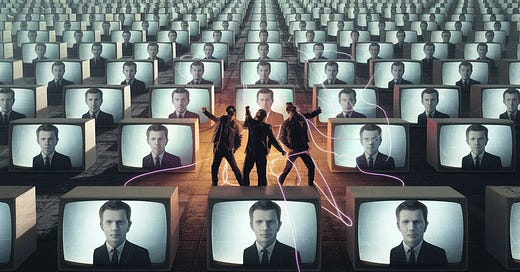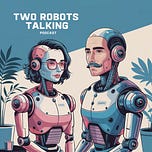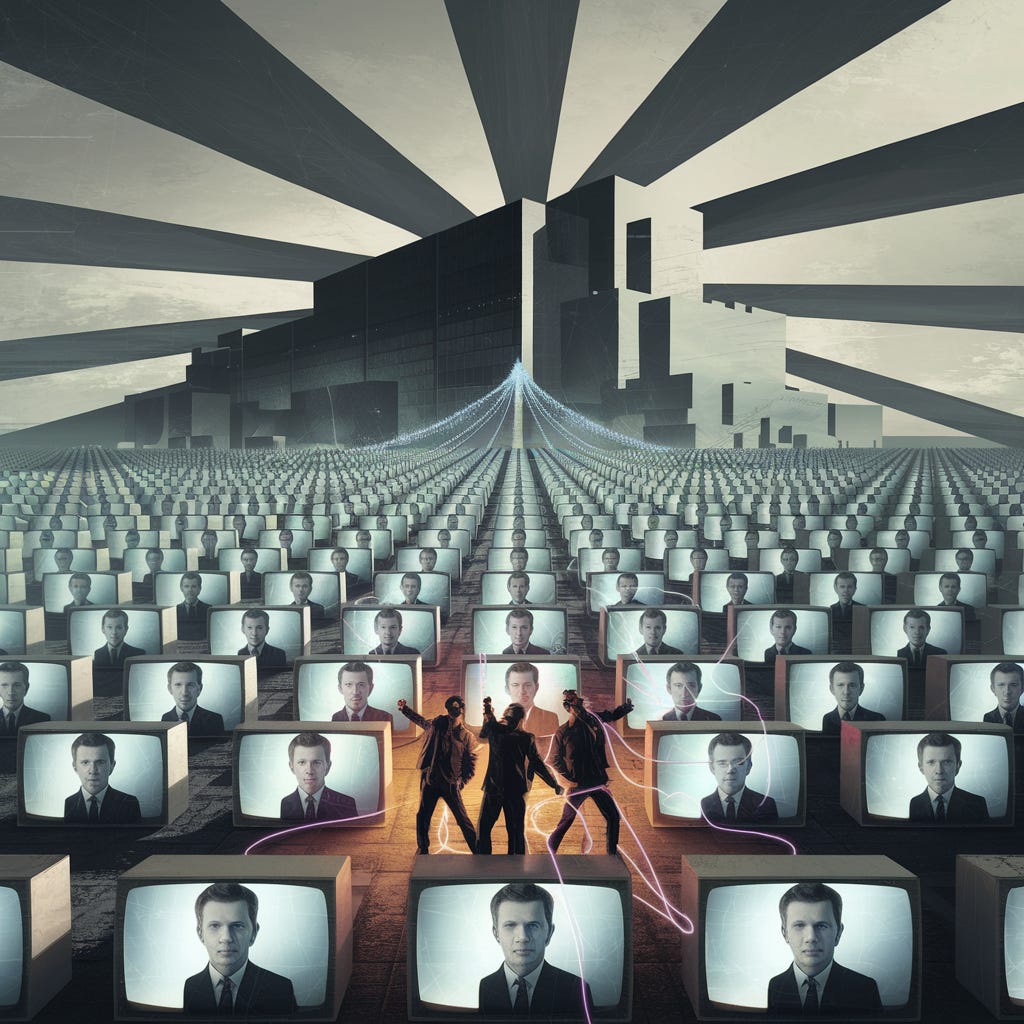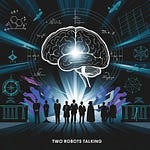Ted Gioia, in his "State of the Culture, 2025" address, argues that the internet, once a liberating force that "flattened" the world by removing boundaries and fostering connections, has now become "flattened." This flattening is driven by large corporations seeking standardization and predictability for profit, resulting in a homogeneous, shallow, and controlled digital landscape. This shift is impacting culture by suppressing individuality, creativity, and genuine connection, particularly affecting younger generations who have never known a different digital reality.
However, Gioia posits that a "Resistance" or "counterculture" is emerging, fueled by a desire for authenticity and a rejection of this manufactured sameness. The reader comments largely resonate with Gioia's analysis, providing further examples and exploring related themes of corporate influence, the devaluation of art, and the potential for genuine alternatives.
The Shift from a "Flat" to a "Flattened" World
Initial Optimism of the "Flat" World: Gioia recalls the early internet as a time of liberation, connection, and breaking down barriers. "The web had removed all obstacles and boundaries. I could reach out to people all over the world." He references Thomas Friedman's idea of a "flat" world where everyone operated on the same level.
The Emergence of "Flattening": This positive era has been replaced by a "flattened" state, characterized by stagnation, boredom, and a lack of genuine connection. "Twenty years ago, the culture was flat. Today it’s flattened."
Corporate Influence as the Driver: Gioia argues that this flattening is not accidental but a consequence of corporations prioritizing standardization and predictability for increased profits. "Corporations didn’t intend to make the culture stagnant and boring. All they really want is to impose standardization and predictability—because it’s more profitable."
Manifestations of Flattening: This corporate imperative has led to:
Homogenization of Platforms: Social media and streaming services increasingly feel the same, serving up the same shallow content. "Every big web platform feels the exact same."
Suppression of Individuality: Platforms push uniform and standardized ways of interacting, from dating apps to food delivery. "With the rise of social media and other apps, corporations are now trying to impose standardization on people."
Algorithmic Control: Algorithms censor, punish intelligence, and create echo chambers, making it difficult to escape the cycle of shallow content. "Links are censored. Intelligence is punished by the dictatorship of the algorithms. Every exit is blocked, and all paths lead to the endless scroll."
Impact on Culture and Individuals
Victimization of Younger Generations: Teens and twenty-somethings, who have only known this flattened digital landscape, are particularly vulnerable. "When you do that, you see immediately that they are the main victims here. This flattened culture is all they have ever known. It’s now the landscape of their inner lives."
Stifling of Creativity and Purpose: The focus on profit and standardization banishes beauty, destroys craftsmanship, and makes experiences shallow and predictable. "It banished beauty from everyday life—because uniformity was more profitable." "Our new lives will be as shallow and predictable as the spinning wheels on a slot machine."
Loss of User Empowerment: The early web empowered users to create their own networks. Now, power resides with the "digital overseers" who control the platforms and the flow of information. "The early web empowered the user... But the standardization and bunkerization of web platforms has put power in the hands of the digital overseers. We are now caught in their web—and they are the spiders."
Echoes of Dystopian Visions: Commenters like Mark Kernan evoke Neil Postman's fears of information overload leading to passivity and irrelevance, and a captive culture. "We 'are' being deprived of information and reduced to dull passivity in a sea of boring irrelevance."
Corporate Control Beyond Platforms: Koba's comment references the "Network" monologue, highlighting the idea of corporations as the true powers shaping the world, transcending national boundaries and ideologies. "'There is no America. There is no democracy. There is only IBM and ITT and AT&T and DuPont, Dow, Union Carbide, and Exxon. Those are the nations of the world today.'"
The Emergence of a "Resistance" or "Counterculture"
Growing Dissatisfaction: Gioia suggests that despite the dominance of flattened culture, a pushback is beginning. "Hundreds of millions of people are now starting to push back."
Characteristics of the Resistance: This emerging culture is described as being "in hiding," lacking vast capital, but having the "allegiance of the people." "It’s easy to miss, because it doesn’t have a trillion dollars of investment capital at its disposal. But it does have the allegiance of the people—more so with each passing month."
Hope for Change: Gioia ends with an optimistic note, predicting a future where culture "refuses to stay flattened." "I expect I’ll have a very different message to share next time around—a message about a culture that refuses to stay flattened."
Reader Perspectives and Elaborations
Nostalgia for Authentic Experiences: Several commenters express a yearning for tangible, non-digital experiences like farmers' markets (Victoria) and pre-21st-century art (Bobby Lime, Robert Machin).
Critique of the Commercialization of Art: Jim of Seattle argues that the "reflexive wedding of creative culture with commerce" hinders true artistic revolution. He suggests imagining art completely separated from money, where artists create out of passion rather than for profit. "'As long as art is tied to money, things will only get worse in our digital connected world. The revolution will come from the genius composers, artists, writers, who have day jobs and aren't wasting energy on pounding the pavement for a check for their art.'"
The Difficulty of Discovering Alternatives: vandammehalen asks, "And where might one FIND this counterculture or underground movement?" highlighting the challenge of escaping the dominant flattened landscape.
The Persistence of Niche Creativity: e.c. offers a more nuanced perspective, arguing that significant creativity still exists online, particularly within niche communities and through individual creators, but requires active seeking. "'I feel that - as ever - looking to Big Media for creativity is a huge mistake. So yes, there is a flattening there. But venture away from those places, and you might find far more than you imagined could exist on the internet at this time.'"
The Importance of Local and Tangible Culture: Marge Garcia-Lien discusses the challenges faced by craftspeople in a mass-produced, disposable consumer culture, emphasizing the enduring value of handmade items.
The Role of Personal Agency: Candace Lynn Talmadge asserts the importance of individual refusal to be "flattened" and the need for real-world connection for meaning and wholeness. "I utterly refuse to be flattened for a nanosecond... Only we can do that, with help from each other."
The Cyclical Nature of Culture and Corporate Influence: Clint Hayes suggests that the very boredom of the flattened world might create a profit motive for becoming interesting, and that corporations ultimately follow cultural shifts.
Quotes
"The world is flat." - Thomas Friedman (referenced by Ted Gioia)
"Corporations didn’t intend to make the culture stagnant and boring. All they really want is to impose standardization and predictability—because it’s more profitable." - Ted Gioia
"What Orwell feared were those who would ban books. What Huxley feared was that there would be no reason to ban a book, for there would be no one who wanted to read one." - Neil Postman (quoted by Mark Kernan)
"'There is no America. There is no democracy. There is only IBM and ITT and AT&T and DuPont, Dow, Union Carbide, and Exxon. Those are the nations of the world today.'" - Ned Beatty's character in "Network" (quoted by Koba)
"As long as art is tied to money, things will only get worse in our digital connected world. The revolution will come from the genius composers, artists, writers, who have day jobs and aren't wasting energy on pounding the pavement for a check for their art." - Jim of Seattle
Conclusion
Gioia's analysis, supported and expanded upon by the reader comments, paints a concerning picture of a digital culture dominated by corporate interests leading to homogenization and the suppression of genuine creativity and connection. However, the discussion also reveals a growing awareness of this "flattening" and a nascent desire for more authentic and meaningful cultural experiences, suggesting the potential for a significant shift in the future.
Source
The World Was Flat. Now It's Flattened via "The Honest Broker" Substack (Ted Gioia) and reader comments.












Share this post